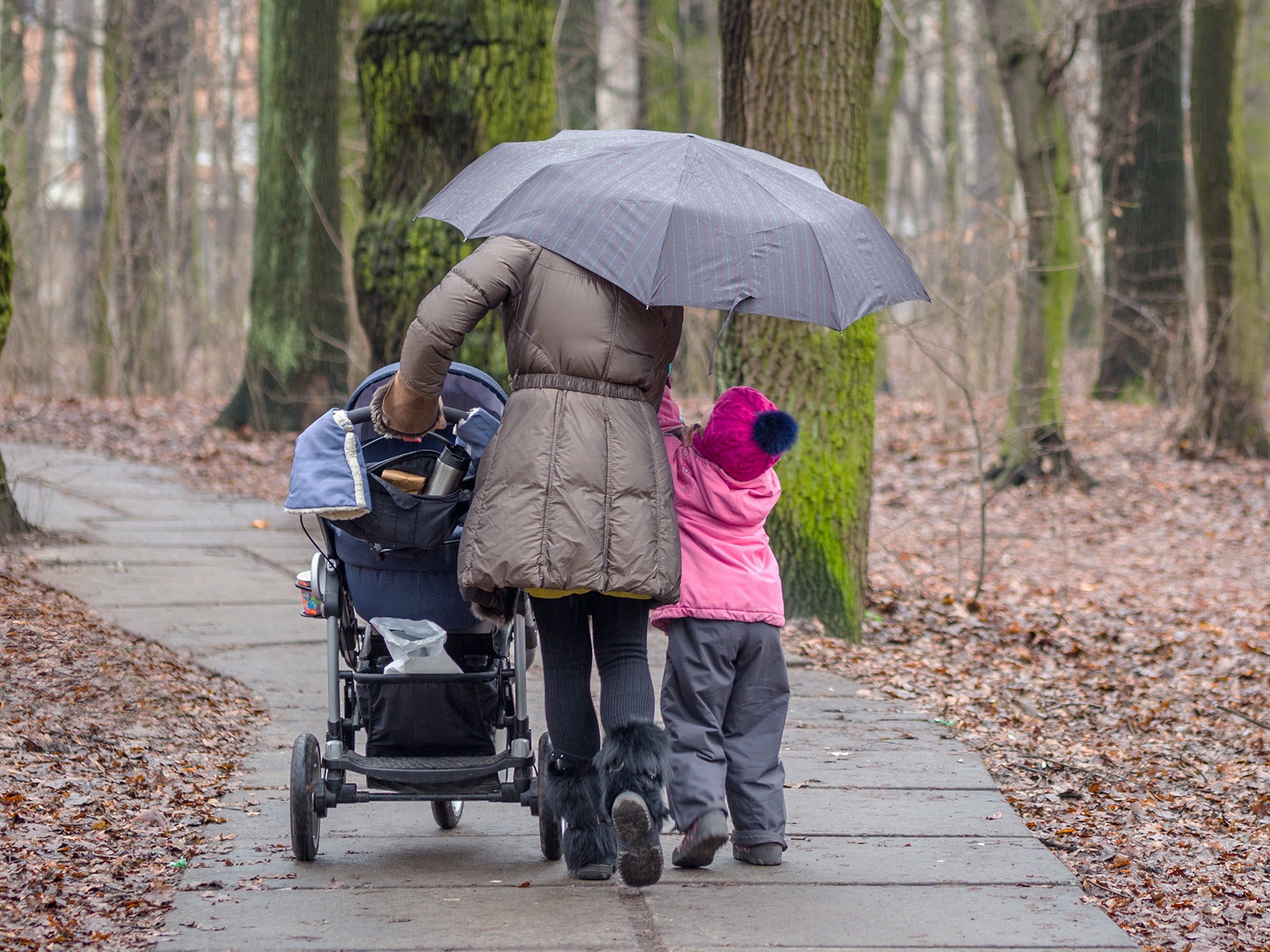A women’s place has never been in the home – the truth is far more complex than that
A vast majority of Britons still believe women should be the primary caregivers. Why is our image of motherhood based on a specific, fleeting cultural moment that mainly exists in 1950s advert land?

How many ways are there for a mother to fail? You could be forgiven for thinking there are infinite. Hot on the heels of a report claiming over-involved “helicopter parenting” leads to behavioural problems in young people, a British Social Attitudes survey has only 7% of interviewees agreeing that mothers of children under five should have full-time jobs.
As one such mother, I can’t say I’m particularly devastated to meet with such disapproval. It’s easy for people to make abstract judgments based on rose-tinted misrepresentations of the past.
Stay-at-home motherhood is routinely characterised as “traditional”, despite the fact that our image of it is based on a specific, fleeting cultural moment that mainly exists in 1950s advert land. While so-called “working mothers” are frequently seen as an invention of late twentieth-century feminism, the truth is they have always been with us.
After all, there are many reasons why a mother of children under five may be engaged in paid work. The need to eat, for instance. The need to be liberated from dependency on the wage of a husband. The need to escape social isolation. Love of one’s job. Future security. The basic human freedom that a capitalist society only makes available to people who have money.
One could argue – and perhaps many of the survey respondents would do so – that none of these things matter when set against meeting the emotional needs of a child. But even if that were true, staying at home with children should not come with such a massive penalty in terms of financial security, social influence, personal safety and access to resources.
If stay-at-home motherhood – and not the exclusion of mothers from public life – really were the priority, we would make it easier for all women to do it. That there is no great political impetus to do so is, I think, telling.
Before I had children, I understood choices about motherhood – how you give birth, whether you breastfeed or not, whether you are in paid work or not – in deeply politicised, ideological terms, because that is how they had been presented to me. Would I be the sort of mother who did this or that? What would it say about me?
What I actually found, as the vast majority of women do, is that you do what you can afford to, physically, mentally and financially, in the context of a society which doesn’t value female-coded labour. My presence in the office is not a feminist statement. Another mother’s presence in the home is not a judgment on me. We both have more important things to do.
Today’s perceived tension between stay-at-home mothers and mothers in paid employment – frequently characterised by the right-wing press in terms of “mummy wars” – is driven not least by the simultaneous idealisation and devaluation of the former. I might be considered a bad mother, but the way I spend my days is classed as “proper” work, for which I get paid. A stay-at-home mother might be rewarded with fleeting approval in a social attitudes survey, but actual recognition of her labours is rarely forthcoming.
What both of us need is a world which considers the care of small children not just a duty imposed on whoever gives birth to them, but genuinely important, regardless of who does it. The separation of public and private space, and with it the gendering of work as masculine, care as feminine, harms us all. It reinforces inequality and breeds a culture of neglect, not just surrounding the young, but the sick and the elderly. Caring is for everyone, not just some mythical 1950s angel of the home.
While I write this my two-year-old son is at nursery. I don’t feel guilty about this. I have not “farmed him out”. I haven’t just swanned off, like some 1980s power-suited career bitch, hell-bent on raking in more cash to spend on cocktails and designer heels.
I’m simply doing what all mothers have done since time immemorial: messily piecing together a life for me and my children. It isn’t tidy. It doesn’t come with any guarantee that my offspring will emerge into adulthood unscathed. It doesn’t make me better or worse than other mothers. However we do it, care work has to mean more than caring about what others think.
Join our commenting forum
Join thought-provoking conversations, follow other Independent readers and see their replies
Comments
Bookmark popover
Removed from bookmarks